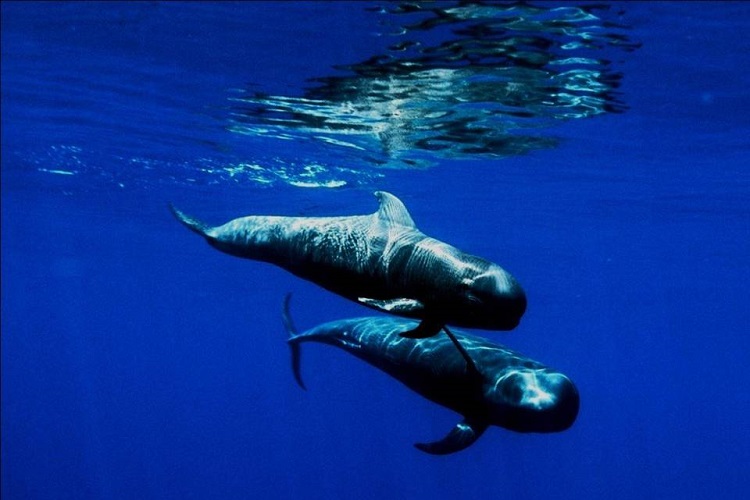Universities recognised in UK’s Best Breakthroughs list

The global impact of research carried out at the Universities of Abertay, Dundee and St Andrews has been recognised in a list of the UK’s ‘100 best breakthroughs’ of the last century.
The University of St Andrews is highlighted for the work of the Scottish Oceans Institute, which has brought together over 300 staff to promote interdisciplinary marine research, ensuring Scotland remains at the forefront of marine science.
The University of Dundee is featured for its contribution to developing the flat screen technology that is in use in virtually every mobile phone, tablet and television.
Abertay University’s inclusion comes as a result of their internationally-renowned work in computer games, which saw the University launch the world’s first degrees in the discipline before pioneering collaborative new teaching methods and a diverse range of research projects.
The list of breakthroughs demonstrates how UK universities are at the forefront of some of the world’s most important discoveries, innovations and social initiatives.
It includes the discovery of penicillin, work tackling plastic pollution, ultrasound scans to check the health of unborn babies and the establishment of the Living Wage.
The list also highlights the less celebrated but vital breakthroughs that transform lives, including a specially-designed bra to help women undergoing radiotherapy; a toilet that flushes human waste without the need for water; the development of a new scrum technique to make rugby safer; a sports initiative that aims to use football to resolve conflict in divided communities; and even work to protect the quality of the chocolate we eat.
The list was compiled by Universities UK, the umbrella group for UK universities, as part of the MadeAtUni campaign to change public perceptions of universities and bring to life the difference they make to people, lives and communities across the UK.
It follows independent research undertaken by Britain Thinks which found that the public has little understanding of the benefits of universities beyond undergraduate teaching. The findings show that research is one of the key triggers to change opinion about universities but for many people, it is an abstract concept.
Professor Sir Pete Downes, Principal of the University of Dundee, said: “The UK’s Best Breakthroughs list highlights the huge impact our local universities have had, and are having, on society, here at home and around the world. We’re extremely proud of the work of our academics and difference they are making to people, lives and communities.”
Professor Nigel Seaton, Principal of Abertay University, said: “Universities make a vital contribution to our society, culturally, socially and economically. This list highlights the full breadth of that and the transformative impact it has.”
Professor Sally Mapstone, Principal of the University of St Andrews, said: “It says much for the strength of higher education in this one corner of Scotland that its three universities are recognised in this important list. Universities like St Andrews, Abertay and Dundee are hugely important engines of invention and drivers of social mobility, and it is not an exaggeration to say that the ideas and discoveries made here have changed and are continuing to change the lives of millions of people for the better.”
Professor Dame Janet Beer, President of Universities UK, said: “Universities really do transform lives. The technology we use every day, the medicines that save lives, the teachers who inspire, all come from UK universities and the important work being done by academics.
“The UK’s Best Breakthroughs list is a testament to the difference that universities make to people’s lives and we want everyone to join us in celebrating the work they do.”
The UK’s Best Breakthroughs list: 100+ Ways Universities Have Improved Everyday Life was put together in partnership with universities across the UK. As part of the MadeAtUni campaign, every university in the country was invited to nominate the one thing from their institution which they believe has had the biggest impact on people, lives and communities. Over 100 universities submitted a nomination. The entries cover health, technology, environment, family, community and culture, and sport.
You can find out more about the UK’s Best Breakthroughs and the MadeAtUni campaign online.
University of St Andrews – the Scottish Oceans Institute (SOI)
The Scottish Oceans Institute has brought together over 300 staff from across the University of St Andrews to promote interdisciplinary marine research, ensuring Scotland remains at the forefront of marine science. Seeing the oceans as a rich resource for future human life, the collaboration has identified a marine invertebrate which can regenerate major body parts, which may unlock new understandings of regenerative medicine and stem cell research. They have improved fish welfare and reduced porpoise bycatch by 90% around the UK coast. This work was awarded the Queen’s Anniversary prize in 2011 for excellence in research supporting better governance of the ocean and improved monitoring of climate change.
Abertay University – computer games research
Abertay University created the world’s first computer games degrees in 1997 and has since been at the forefront of driving forward research and innovation in this rapidly growing sector. A range of research topics have made an impact over the past 20 years, as Abertay has led the way in exploring the development needs of an industry now worth more than £5bn in the UK alone. These have included games simulations to assist cancer treatment, interactive training tools for police and the fire service, a virtual reality project cataloguing the memories of war veterans, and a unique digital geotagging performance capturing Dundee’s links with Timex and the ZX Spectrum computer.
University of Dundee – a world of flat screens
The technology that made the ubiquitous LCD screen possible can be traced back to a former jute shed in Dundee, which in the 1970s and 80s became the world centre for pioneering research in electronics at the University of Dundee, led by Professors Walter Spear and Peter LeComber. This a tale of world firsts, outstanding resourcefulness, and silent bagpipe playing…